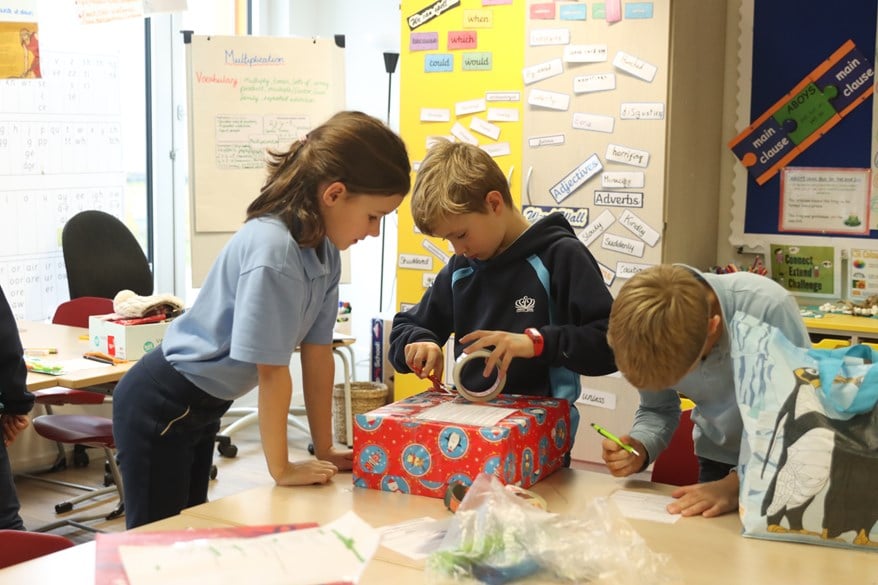“What is community?” – La Côte International School Aubonne, a family school

“What is a community?” Andy Puttock, Principal at La Côte International School Aubonne, explores how community to us here at LCIS means looking after our own ‘family’ whilst contributing fully to the global family that surrounds us.
“What is a community?” If I were to count the words I’ve used most when talking about our school, I am sure the words ‘community’ and ‘family’ would be near the top of the list. And rightly so – we have a common understanding of these words which I believe sums up very accurately the type of spirit we aim to promote in our school. And yet, we rarely stop to reflect on this understanding, or what it means as we evolve.
Both ‘community’ and ‘family’ evoke ideas of a common purpose (seeing young people flourish and achieve beyond their dreams), a group of diverse people acting together as one body (the whole is greater than the sum of the parts), and a real sense of looking after each other (we all succeed more when we make sure that everyone succeeds). They also suggest a set of ‘community values’ which we live by – and things that we absolutely do not tolerate such as bullying, racism, bigotry in any of its forms, intolerance of others’ beliefs or indeed anything which interferes with another person’s learning or wellbeing.
But to go a little deeper, I thought it would be useful to turn to a dictionary definition. There are many, but it is interesting to note that most define community in slightly narrower (and more compartmentalised) terms. The Cambridge Dictionary is a good, concise example, and defines community as:
“the people living in one particular area or people who are considered as a unit because of their common interests, social group, or nationality”
All of this is of course true, but it is also very important, I think, to dwell a little on the broader meaning of ‘global community’. If there is one thing the COP26 conference in Glasgow has taught us over the past few weeks, it is that (whatever our individual scientific beliefs or personal viewpoints) there are issues which supersede local interests and groupings. One of my beliefs as an educator (and one of the reasons why I love international education so much) has always been that we need to value, celebrate, and tolerate diversity whilst at the same time seeking a common purpose in equipping our children with the skills, values, and attributes they need to create a better future for the world, without ever seeking to impose our own views on them.
This plays out in so many ways – I am delighted that our student council is planning to use our non-uniform days to celebrate different cultures. As a bilingual school, we do of course promote excellence in both English and French, but we also want to celebrate and encourage students to develop their own culture and language. Looking forward, we want to become more and more involved in our local ‘community’, in other words, we need to be ‘part of Aubonne’ and the region, rather than just being ‘in Aubonne’. These are just a few specific examples of something that is at the heart of education – looking after our own family whilst contributing fully to the global family that surrounds us.
This brings me back to the LCIS community that is so close to our hearts. When I think of all the “community events” we hold – from Trunk or Treat to the Winter Fair, from our charity events and fundraisers (like the Swiss Table and Gift Box Appeal) to curricula like the inspiring Year 2 assembly on “Celebrating the World” (with LCIS Airways!) – I realise that this sense of “better together” really resonates. Strong communities are not isolationist, quite the opposite – I see that by cultivating and embedding these values in our own community, we can become a catalyst for the global community values we desire to see.
I am aware as I write that this seems a very grand idea, but if there is one thing I have learnt over my years in education, it is that no matter how big our ideas are as adults, students can take them one step further. We tend to ask “Why?”; young people tend to say “Why not?”. And that is the joy of what we do!
Andy Puttock,
Principal at La Côte International School Aubonne
